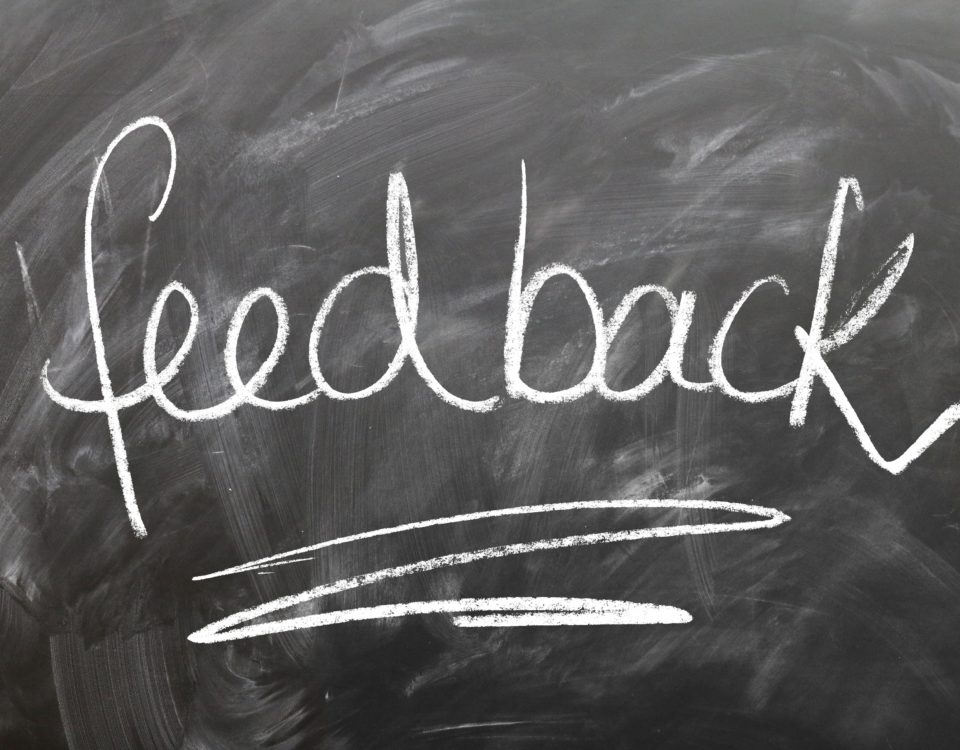3 Things to Determine if a Personality Test is Accurate and Reliable

3-Steps to Effectively Handle Feedback
November 11, 2019
Blind Spots: What You Should Know About It
November 26, 2019
We are no stranger to personality profiling tests in the market. In fact, we may even be able to identify avid supporters by the lingo they use to identify others who share similar personality types. While this creates camaraderie among co-workers or social settings, the crucial question remains: how accurate and reliable are these tests?

To take it further, we ask how can they use assessment devices in the hiring process or as a means to diagnose office problems?
For those of us who are keen to leverage on the benefits that personality tests offer, here are 3 simple things to note before taking a personality test.
1. Trustworthiness of a Test
The first criteria to start with is whether a personality test is equipped to reduce the likelihood of candidates faking their answers. For the employing organisation, the assurance of a valid assessment result is paramount. Even for the candidates themselves, it assures them with clarity and precision so they can take specific actions for heartset and mindset improvement without focusing on ability alone.
We can begin by examining the type of questions used in a test. Take some time to browse through the questions in personality tests commonly available on the market. Often times, these tests seek to know almost everything about you – including your social life. However, who you are at work may not be who you are with friends and family. The motivations are different. Tests that are precise and accurate ask targeted questions in a concise manner that are specific to a particular setting. It could be angled to a specific context like work, family or social settings, and can help determine the personality and behavioural inclinations of a candidate under a specific context and environment.
Furthermore, having only a few relevant questions will save you time from answering tons of questions that may be irrelevant in understanding your work personality. 
Next, we can examine the measurement scale used. The use of Rating Scale Statements, True/False, and Yes/No questions in personality profiling has been very prevalent. Yet, few people question whether these measurement scales are appropriate in determining a person’s personality-fit for a job as part of the recruitment selection process. Candidates can beat the system by answering the questions based on what they interpret is expected of them for the job role, even if their responses may not truly reflect their actual self. This is often because they can predict the outcome of their reports simply from the way the questionnaire is designed. Hence, it is key to safeguard the quality of responses by examining the fundamental design of a personality test.
For example, how will you rank your preference of the following: Plan things before doing / impart knowledge to others / sensitive to others’ feelings. Notice that all the statements are equally positive, making it hard to predict a personality type from the candidate’s point of view. This reduces a candidate’s attempts in trying to steer his results to something more ‘desirable’ in his own eyes.
At the deepest level, we can examine the background theories that form the basis for the personality test. This determines the type of assessment models used. While often test developers do not reveal much about this, it is the most crucial to understand. Trustworthy tests need to be backed by past validated research work that comes from several established models with a multi-disciplinary perspective.
Under time constraint and with limited resources, it is understandable that many tend to evaluate tests based on intuitive observations. For instance, some assume that leaders who drive results are also demanding. As a result, many struggle with tests that evaluate a set of essential attributes across groups of individuals (Normative Assessment) without first understanding the uniqueness of an individual’s personality (Ipsative Assessment). Therefore, giving our due diligence to examine this qualitative aspect of tests is necessary.
2. Versatility of a Test
Another key criteria many people have in selecting personality tools is whether they are versatile. Depending on your HR needs, tests that offer only a generic, all-purpose standard report may not be representative and actionable enough to meet your specific needs. Often, you may require a variety of recruitment selection, talent management, and learning & development reports. To generate them, be wary if some tests require you to complete different questionnaires at different times. The huge expense of effort often raises one’s expectations of the outcome. More than the inconvenience resulting from multiple inputs, this also raises concerns of inconsistency from having answers from different questionnaires.

On the other hand, a handful of tests offer the option for the use of customised reports for assessment, learning and development. Some examples include recruitment selection reports for core-values fit assessment and for specialised job positions. Further examples can be found here. Even if you do not have a need for customised reports at this point in time, you can be assured of the robustness of such tests given their research capabilities for customisation. Keep a lookout for them. In fact, seize opportunities that arise to connect directly with the test developer. With their client-centric nature to journey with you at every stage, the sky is the limit.
3. Hassle-Free Nature of a Test
To some, a questionnaire with hundreds of questions gives the impression of quality assessment. Well, the length of the questionnaire does matter – only to a certain point. Often, candidates struggle to complete unduly long questionnaires. With fatigue, quality of responses will be compromised. Hence, simply using a personality test with an optimal number of questions could make a winning difference.
What is the reason that some personality tests are more popular than others? Chances are, it is because they can be completed in a very short time – within 15 to 20 minutes. Nonetheless, the accuracy and applicability of the results back in the workplace remains to be examined. Few tests, if any, have achieved a balance between being concise and demonstrating diagnostic accuracy.
Conclusion
By this point, you may be amazed by the many considerations that go into selecting a personality test that is accurate and reliable. In fact, the considerations discussed above are not an exhaustive list. If the tests you are currently using have been working for you, we trust this gives you clarity on the reasons why so and possibly how they can work even better for you. And if not, feel free to give it a shot by examining the criteria above. Once you begin, the process may not be as arduous as it seems. In fact, it will be more rewarding than ever.



1 Comment
[…] If you like the SQI system psychology perspective and the Non-Evaluative Paradox Model, do find out more about the “3 Things to Determine if a Personality Test is Accurate and Reliable”. […]